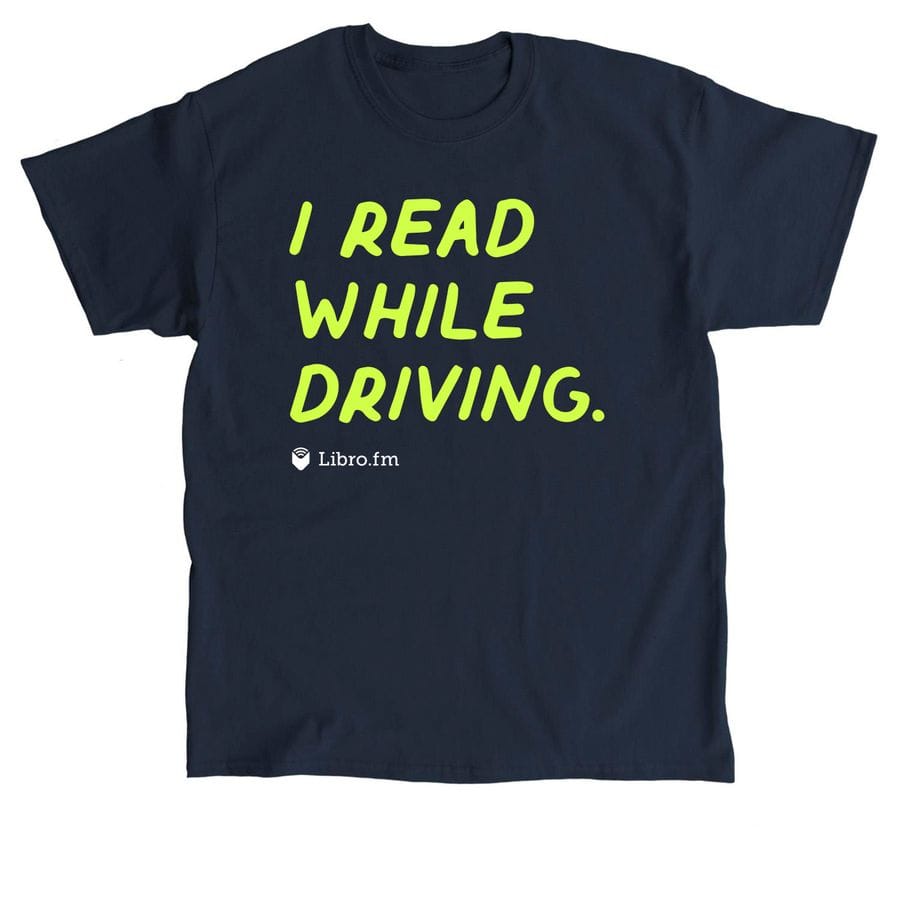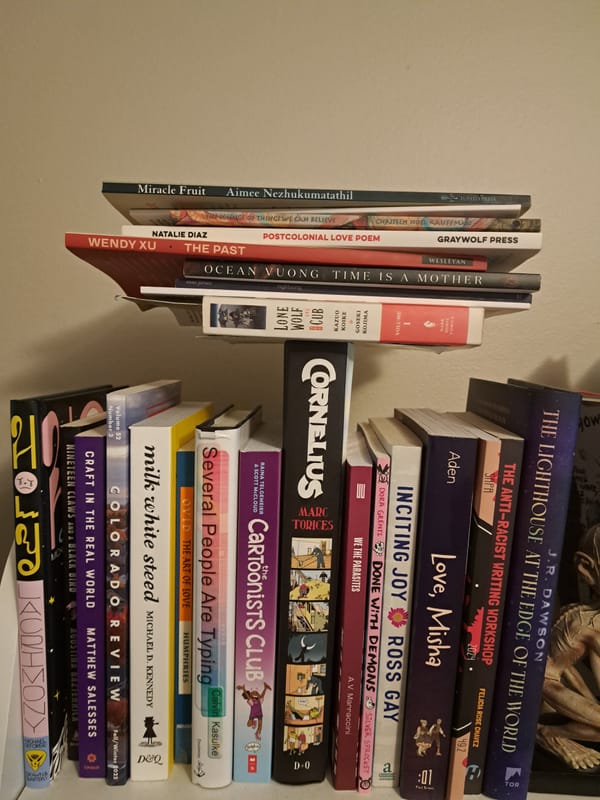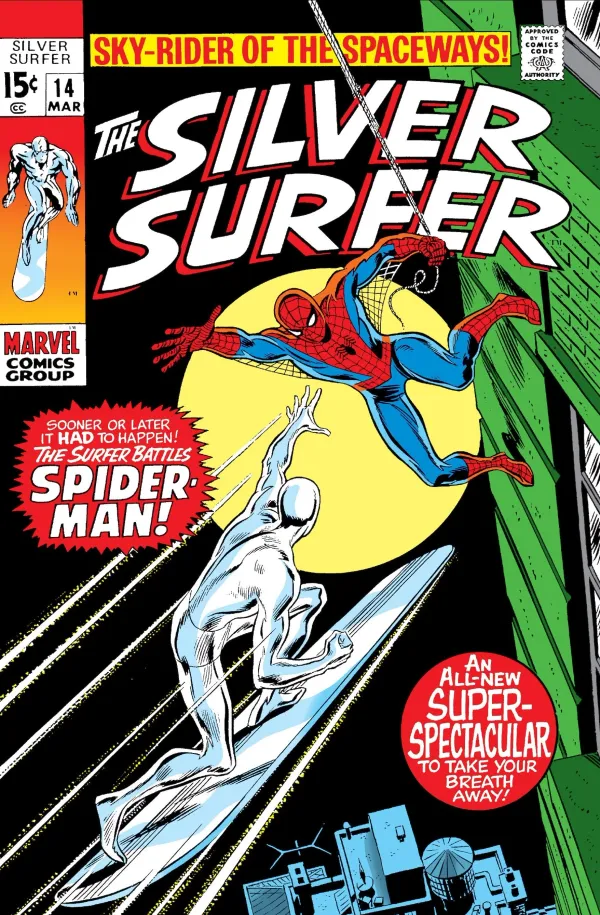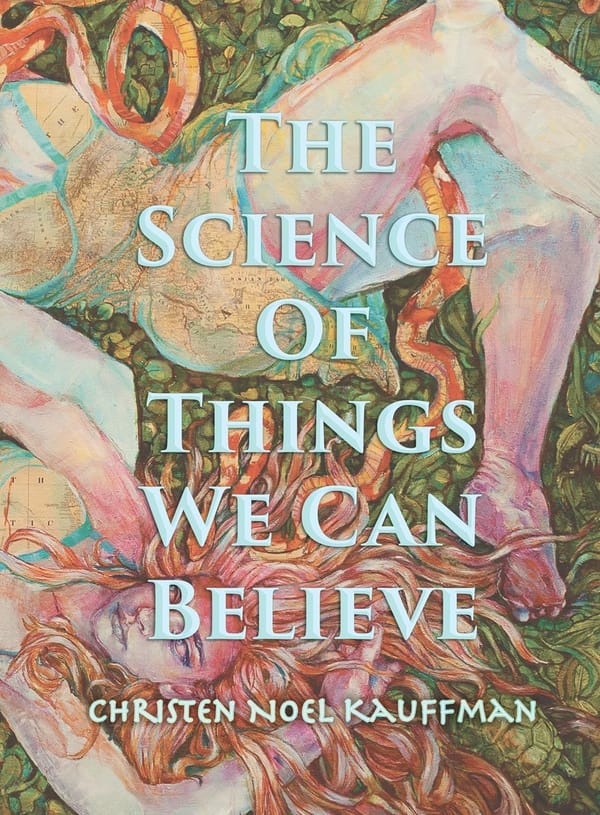I Read While Driving; But Should I?

It’s the time of year for traveling and driving which means I’m thinking deeply about the books I listen to. A few months ago, I received the above shirt as a gift and it quickly made its way into my “cleaning or loafing at home” rotation. Very comfy, very much part of my indoor uniform vibe, and very related to how I get about a third of my reading done every year.
Each year I read between 20 and 30 audiobooks, primarily on my drive to and from work. I also live far from my girlfriend and a couple hours from family, so I really knock out books during the holiday season’s additional traveling. A seven-hour audiobook could easily get finished before the week is out, considering the 2 hours of total travel to and from work, plus the little chores or trips I make near home. I exclusively use Hoopla through my library but have been thinking of branching out into some other free options. The big problem is that I have a large list of favorites on Hoopla that I then use a randomizer app to choose which one I listen to next. Yes, I live in this chaos. Yes, I have difficulty changing habits. How’d you know?
Early in my audiobook listening, I assumed that I’d listen to fiction primarily, but I quickly found out that this listening puts me to sleep like nothing else. Clearly, doing this while driving wasn’t the best choice. I’ve never fallen fully asleep while driving, as far as you know, so I feel safe admitting it but this led to me exclusively listening to nonfiction. I would listen to poetry, which I’ve found doesn’t put me to sleep either, but there aren’t that many options for contemporary poetry on audiobook in Hoopla and I like reading those physically far more.
Regardless, I’ve stuck to nonfiction explicitly. The range of nonfiction I listen to is wide though. As long as it’s not fiction it seems like the sleepiness is kept at bay. This year alone I’ve listened to Seeing Like a State by James C. Scott (about how states quantify and control people and the reasons behind it), Music is History by Questlove (a wonderful journey through music as it related to historical moments), Kindness and Wonder by Gavin Edwards (Mr. Rodgers all day every day), and Teaching to Transgress by bell hooks (it’s all there in the title but it’s about teaching, feminism, and thinking deeply about our theories of education) alongside about 16 others. My tastes range widely and as long as it’s giving me some sort of information, I’m into it.
The past three months, though, have made it clear that I have some additional lines in the sand when it comes to my listening habits. Since my second job this semester has been driving to my job, I’ve had far more time in the car. One thing I’ve learned is that transitioning to music every once in a while helps me stay focused on the book when I return. Another is that I rewind wildly. A week ago I finished Why Indigenous Literatures Matters by Daniel Heath Justice which came in at just over 9hrs of listening according to Hoopla but took me about 10 and a half. Listening at 1x speed is also a must or my mind veers wildly away from the reading.
But, the most surprising realization that I’ve had is that some books are not made for me to listen to. Here, I’m not talking about the books I’ve had to DNF because the audiobook narrator sounded like a computer pretending to be a human pretending to be a computer or the history book that had so many dates and citations that I couldn’t actually follow what was being said. Instead, I’m talking about books that send my mind winding and weaving in various directions that make me pay less attention to the car coming up behind me trying to play tag. Even more specifically, I realized my inability to fully pay attention to some books while listening to Pedagogy of the Oppressed by Paolo Freire.
I promise I’m not trying to flex here, a lot of the books I have on my listening TBR are related to some field I’m involved in, and this is very much related to my work in teaching. When I randomized this book, I was excited because I’ve only really read the first couple chapters before and have been wanting to read the whole book for a long time. What better way to get pumped up for teaching by driving into campus learning about the banking concept of education? Maybe not your cup of tea but it’s my double shot of espresso through an IV drip.
As I listened to the introduction to the book by Donaldo Macedo, I should have realized that the rest of the book would be even more difficult. Throughout, I found myself pausing and rewinding and pausing as I listened to Macedo and continued to be excited by how the book was being contextualized. I found myself going, “oooo that’s so interesting what if I…” and then looking down briefly to see about 5 minutes had passed and I had no idea what Macedo was talking about. Since it was the intro, though, I thought that this was just me trying to remember and adjust and get used to what was coming next. Ha. Ha-ha even.
As the book continued, I found my mind wandering hard. The logic of Freire’s argument is complex, compelling, challenging in the best ways possible. It’s remained a kind of classic pedagogy text because it challenges so many ideas around instruction and theories around teaching that we grew up with. While I’d argue it’s pretty accessible if approached with patience and understanding, the language he uses is intentional, specific, and highly unique to the very unique situation he’s addressing. Which, as I was listening to the book, had me thinking about the things I do inside my classroom, things I’ve seen others do, ways I could engage better with the work I’m doing, limitations based on my job description, ways around it, and you’re starting to see that I missed immensely large sections of the book as I was considering my own practices.
I found myself rewinding too far, just trying to find something I could latch onto or remembered. When I did, I’d listen and it wasn’t just memory and reorientation but it was making me think differently again. I listened twenty minutes ago to this part but now I was thinking about grading and damn it. Rewind again.
Eventually, I stopped rewinding because I was relistening to parts four, five times and my mind pulled me in different directions and spaces. I grew frustrated with myself, as though I wasn’t reading closely enough or paying enough attention to take Freire’s words seriously. I usually start from a place of self-blame and shame. But, as I thought about it more after my drives, I realized that this was something that I needed to physically engage with. Something I need to take notes on, write in the margins, underline. It was a book I needed to read in hard copy.
I don’t want to suggest here that reading physically is inherently superior to listening to books. There are plenty of ways to make audio reading as engaging as reading physical books and many people absorb better through audio. Myself included (most of the time). But in this case, it was something that I realized I needed to spend time on with my hands. I needed to hold it and move it around and put it down for a while so that my mind could drift into the hidden compartments of the secret drawers in the new desk that was being formed in my head by reading. Doing this while driving is ill-advised. I’m not a lawyer, but paying attention while driving is the advice I’d give you if we were sharing a coffee right now.
I’m sharing this because I shame myself a lot for my reading strategies and what I need from reading. I’m sometimes ashamed that I need silence or crave others to read. That I’m too tired some nights from the driving and the working and the childcare and a book or comic feels like too much to add to my already numbing brain. If I’m not using the time while driving for reading (meaning something “valuable”) then I’m wasting this immense amount of time. It’s all part of the ways I was taught to talk to myself about my own self-worth that I’m working through; will always be working through.
But when I listened to music afterwards (a playlist called “Spooky Banjo Time” which I highly recommend and potentially tells you more about me than I’d like) when I finally finished the audio version of Pedagogy I cried to songs about heartbreak and it felt right. When I started a new book, it felt good to engage with something I could think about while driving. It felt good to recognize that I’d need to order this one from the library to get the suggestions of books that it mentions (here I’m thinking about Justice’s book mentioned earlier which was the book I started after Freire and has so many awesome suggestions of writers that I could not write down while switching lanes). It felt good, too, to recognize what I was able to read at night. Some poetry, some comics, only a couple pages of prose at a time.
I read because it expands me into a larger space for love. Audiobooks help me listen better, give me another way to get closer to the person I’d like to be. Reading teaches me patience too. It helps me see that there isn’t enough time for all the books, but the time you do have with the books you can engage with, requires that slowing down. As does driving on the highway. Many of you all are going way faster than is safe. Don’t make me call your parent and/or guardian.
If you like what you read here, head over to Widely Read to subscribe for a monthly dose of writing about reading (or writing). You can subscribe for free or throw a little my way monthly.
You can follow the link below to do a one time donation so I can pay for the gas I use while reading. There's so much driving.





